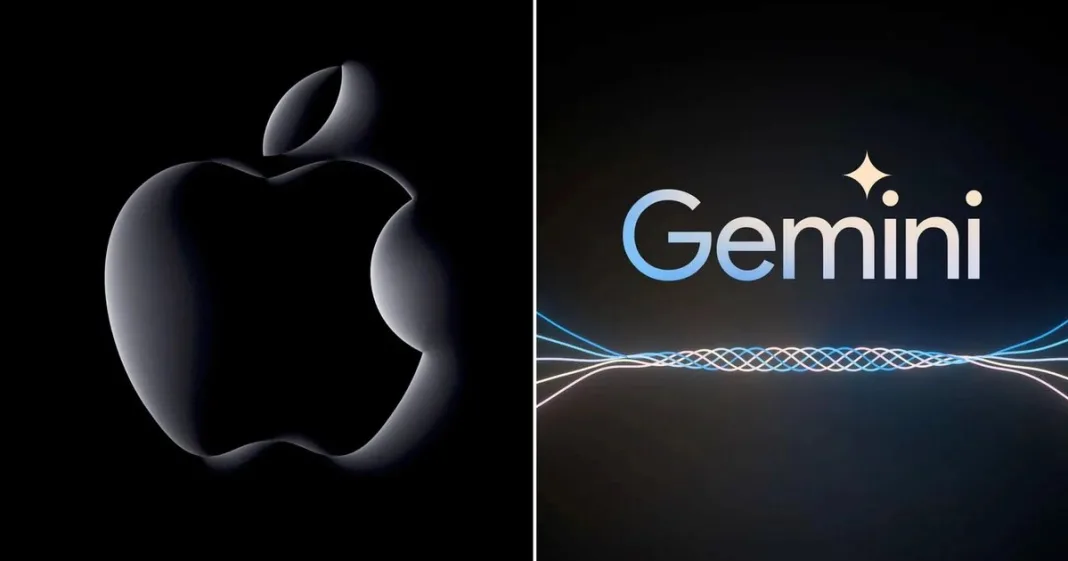Artificial Intelligence has become the defining battleground for big tech. Every major player—Google, Meta, Microsoft, OpenAI—is racing to create smarter, more capable AI systems that can transform user experience. Apple, once a pioneer in digital assistants with Siri, has gradually slipped behind in the race. While competitors’ assistants evolved into conversational, context-rich helpers, Siri remained limited, often mocked for its robotic responses and inability to handle complex queries.
Now, Apple appears to be rethinking its approach. Reports suggest that the company is considering a partnership with none other than Google—its fiercest rival in the tech world—to integrate Gemini AI into Siri’s future versions. If true, this would represent a significant pivot for Apple, which has historically preferred to keep hardware, software, and services tightly controlled within its ecosystem.
So, what’s happening behind the scenes, why is Apple considering this move, and what does it mean for the future of Siri? Let’s dive in.
1. Why Apple Is Rethinking Its Strategy
For years, Siri has lagged behind. While Google Assistant and Amazon’s Alexa showcased deeper contextual understanding, Siri often struggled with even moderately complex queries. Tasks requiring multiple steps or natural conversation flow highlighted Siri’s weaknesses.
Apple had announced an ambitious overhaul of Siri, originally targeted for release in 2025. However, delays and engineering setbacks have pushed the expected launch back to 2026. This has left Apple vulnerable at a time when rivals are rolling out powerful AI-driven assistants that are redefining user expectations.
Instead of waiting another year or two to roll out improvements, Apple is now exploring external partnerships. Talks are underway with Google, OpenAI, and Anthropic, indicating that Apple is more open than ever to leveraging third-party AI systems to accelerate its timeline. For a company that prides itself on independence, this is a major cultural and strategic shift.
2. The Quiet Talks with Google: What’s on the Table
Behind closed doors, Apple has reportedly entered into discussions with Google to license a specialized version of Gemini AI that could power the next generation of Siri. These talks are still in early stages, and a final decision is expected in the coming weeks. Apple hasn’t yet committed—it is still weighing the pros and cons of using Gemini versus relying on its in-house models or even exploring other AI partners.
Interestingly, Apple is already running parallel experiments internally. Two prototypes of Siri are being developed:
- Linwood – Powered by Apple’s own in-house AI systems.
- Glenwood – Uses external AI models like Gemini, Claude, or ChatGPT.
This internal “bake-off” will help Apple determine which model delivers the best combination of performance, accuracy, privacy, and user experience. The fact that Apple is seriously considering external AI models underscores just how critical the next version of Siri is to the company’s future in AI.
Adding to the intrigue, Google has already started training a Gemini-based model that could run on Apple’s Private Cloud Compute servers, suggesting technical groundwork is already being laid for possible collaboration.
3. What Is Google’s Gemini—And Why Does It Matter?
Gemini is Google’s latest and most advanced family of AI models. Unlike earlier systems that focused mainly on text, Gemini is multimodal, meaning it can understand and generate across multiple formats—text, images, code, and even audio. This makes it more versatile and adaptive in real-world scenarios.
By integrating Gemini, Siri could suddenly leapfrog many of its limitations. Instead of short, scripted answers, Siri could engage in deeper conversations, process multiple tasks in a single request, and even interpret context more naturally. Imagine asking Siri to summarize an email, draft a response, and then check your calendar for availability—all in one go. Gemini could make this seamless.
This move would also align Apple’s assistant with the new wave of “AI agents,” which act less like question-answer bots and more like digital companions capable of managing daily tasks intelligently.
4. Strategic & Technical Advantages for Apple
If Apple moves forward with Gemini, the partnership could unlock several benefits:
- Faster Rollout: By licensing a ready-to-use model, Apple can bypass the years of research and training required to catch up. This shortens the development cycle and ensures Siri 2.0 is ready by 2026.
- Cost Efficiency: Training large-scale AI models requires billions of dollars in computing resources. Licensing Gemini would allow Apple to invest less capital while still delivering cutting-edge AI performance.
- Privacy by Design: Apple could still maintain its strong privacy stance by running Gemini on its own cloud servers. This means user data would remain within Apple’s infrastructure, giving customers confidence that their information isn’t being shared with Google.
- Flexibility for the Future: By experimenting with Gemini alongside other models like ChatGPT and Claude, Apple gives itself options. It can switch providers or even blend models depending on user needs and market dynamics.
5. Risks & Challenges Apple Must Weigh
Of course, no partnership comes without risks. Apple will need to carefully balance the benefits of using Gemini with the following challenges:
- Brand Identity: Apple has built its reputation on designing every part of the user experience. Relying on Google for Siri could be perceived as a compromise, potentially weakening Apple’s image of being fully self-reliant.
- Privacy Questions: Even with Apple’s cloud safeguards, some users may worry about third-party AI models handling their data. Apple will need to communicate clearly how privacy will be preserved.
- Dependency on Rivals: Google is not just a technology provider—it’s Apple’s fiercest competitor in smartphones, smart devices, and software. Becoming dependent on Google for something as central as Siri could create long-term strategic risks.
- Internal Culture Clash: Apple’s engineering teams are used to building in-house. Partnering with rivals may create internal friction, slowing innovation in the long run.
6. How Analysts View the Potential Deal
The financial world has already reacted positively to news of possible collaboration. Following the reports, Alphabet’s stock rose by around 3–4%, while Apple’s also saw modest gains. Analysts see the partnership as mutually beneficial—Google gains another high-profile partner for Gemini, while Apple gets access to cutting-edge AI without the full cost of development.
One analyst noted that a Gemini-powered Siri would not only accelerate Apple’s adoption of generative AI but also allow the company to pursue its vision without breaking the bank. In a climate where every tech giant is racing toward AI dominance, speed and efficiency matter more than pride.
7. What the Tech Community Thinks
Public reaction has been mixed. Some believe Apple has no choice but to partner externally, given how far behind Siri has fallen. Others argue that Apple should continue building its own models to avoid dependence on competitors.
On forums and communities, several themes emerge:
- Optimists see Gemini integration as a chance for Siri to finally become competitive again.
- Skeptics point out that smaller open-source models already outperform Siri today, questioning why Apple hasn’t acted sooner.
- Realists suggest that Apple should offer users a choice—allowing Siri to be powered by Apple’s models, Gemini, or even ChatGPT—letting customers decide what works best.
This lively debate reflects both excitement and frustration. The market clearly wants Apple to do more in AI, but there’s uncertainty about whether collaboration or independence is the right path.
8. What’s Next for Siri and Apple’s AI Future
Looking ahead, Apple is expected to make a final decision within the coming weeks. If Gemini is selected, Siri 2.0 could debut alongside iOS 18 or later, likely in early to mid-2026.
The new Siri could extend across Apple’s ecosystem:
- HomePod: Smarter home control and entertainment management.
- CarPlay: More natural, conversational in-car assistance.
- Apple Watch: Richer health insights and proactive guidance.
- Vision Pro: AI-driven immersive experiences for productivity and creativity.
Meanwhile, Apple will continue developing its in-house AI systems, keeping its long-term options open. Whether Gemini is a temporary bridge or a lasting partnership remains to be seen.
Conclusion – A Pragmatic Pivot in Apple’s AI Strategy
Apple’s potential partnership with Google for Gemini marks a turning point. It is both a sign of pragmatism and a reminder that even the most independent tech giants sometimes need to adapt.
For Apple, this could be the shortcut it needs to finally bring Siri up to par with rivals. For users, it could mean an assistant that truly feels intelligent, conversational, and capable of managing daily life. But it also highlights how much ground Apple has lost in the AI race—a sobering reality for a company long celebrated for innovation.
In the end, the move may not signal weakness but adaptability. In an AI-driven future where speed and collaboration matter as much as technological control, Apple’s decision to embrace Gemini could be the smartest step toward reclaiming Siri’s place in the spotlight.










